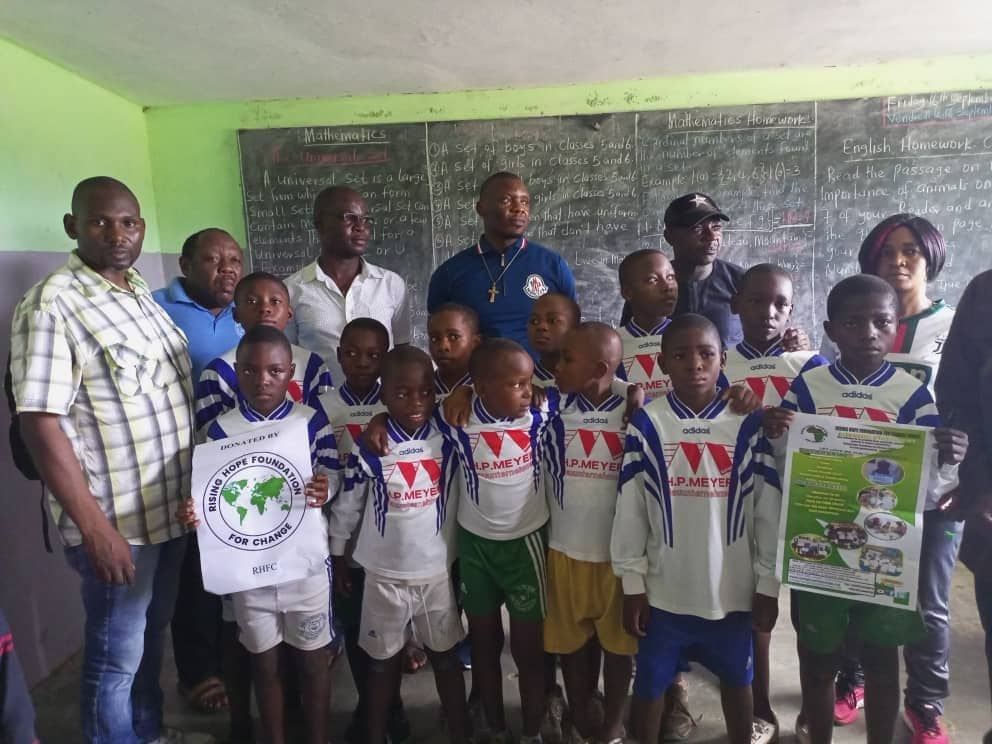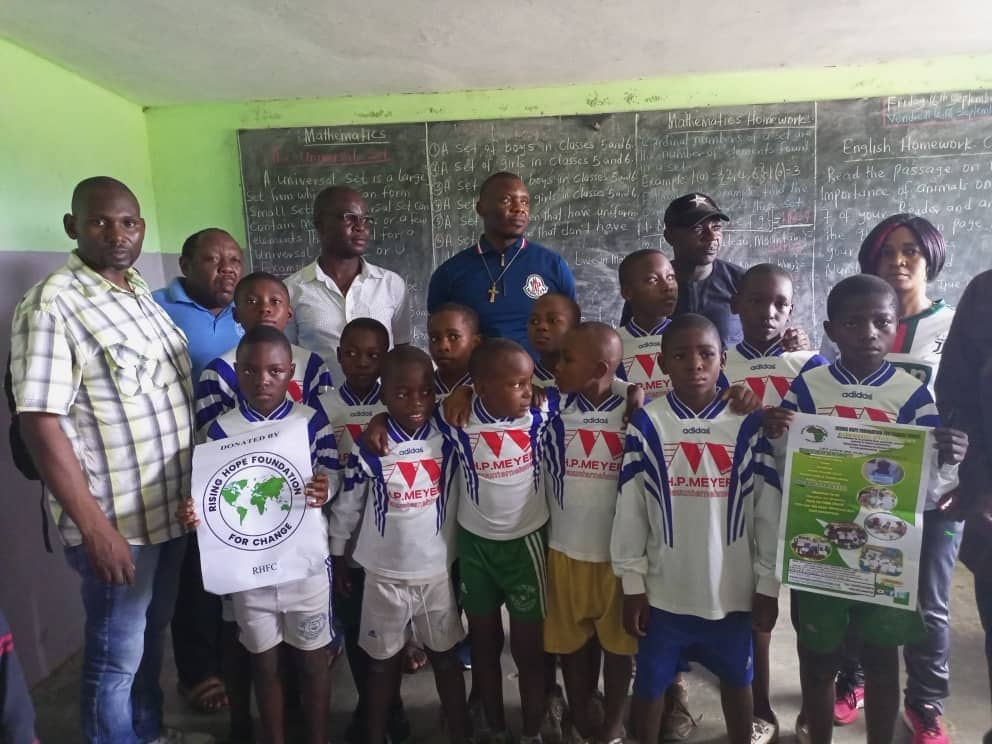
The RHFC project team for Sanaga Maritime arrived FermeSuisse a rural community 25km from Edea town at 12 noon on Friday the 16th of September 2021. The team was headed by Mr. LULU John BILLA (project manager), Mr. Tenlep AG and Mr. Akang Emmanuel Nkwelle. The team was received at the motor park by Mr. Zacheous Unji, the head teacher and a selected staff of FBPN School, who led the team to the school campus where pupils, teachers, parents and IDP community representatives were waiting. The mission was a fact finding one with the following objectives:
1.Donate jerseys to FBPN School.
2.Collect data on the pedagogic challenges of the institution.
3.Contact the parents' representatives and discuss the challenges of the parents.
4.Collect data of IDP pupils in the institutions and their academic and social needs.
5.Discuss with the community and IDP representatives and identify the needs of the community and specifically the IDP community.
Upon arrival the team was received in the headmaster’s office where the team handed a carton containing the jerseys to the school administration. The administration was very happy and grateful to RHFC for reaching out to them at a point of need. There was a visit to the classrooms from the nursery (1&2) to the primary (1-6), after which there was the presentation of the donated to the whole school with photo shots. A football match was previewed after the presentation but as soon as it was time, heavy rains started, and the football march was cancelled.
The first meeting was with the pupils who expressed the following pedagogic and social needs:
I. Exercise books and basic textbooks such as English, Mathematics, French, science and technology etc.
ii. Pens, pencils, rulers, and mathematic sets.
iii. School bags, uniforms, sport attires, school shoes and sport shows.
iv. Benches, toilets, portable water, and a clean environment (school and home).
v. And nutritional and health challenges especially stomach problems.
vi. Have to street hawk after school to late in the evenings to support their parents.
The second meeting was with the teachers and administration of the institution who expressed the following pedagogic and social challenges:
I. Difficulties in teaching because of insufficient and sometimes no didactic materials, no computers (printer, internet inclusive) and difficulties in getting texts books.
ii. Difficulties in implementing the new curriculum of competency-based approach in basic education.
iii. Difficulties in developing and maintaining nature corners.
iv. Insufficiency of tables, chairs, and classroom stands.
v. Inconsistency in salaries resulting in some teachers abandoning work in the heart of the academic year. The proprietor explained that the insufficiencies are experienced because most of the pupils are IDPs, and the others are plantation workers’ children. While the IDPs are simply struggling to survive, most of the plantation workers do not values or prioritised education. Therefore, they hardly pay complete tuition nor on time to enable smooth financial transactions in the school.
The third meeting was with the parents and IDPs community representatives. They expressed the following challenges:
i. Housing (expensive, deplorable, and insufficient) making it difficult for their children to study at home conveniently.
ii. Insufficient finances to buy school requirements and basic necessities such as food, clothes, and shoes for their children.
iii. Poor health and sanitary conditions.
In response the project manager and team oriented the participants on temporary strategies on education and survival. They were assured that their difficulties and challenges will be channelled to RHFC hierarchy and partners, and projects will be developed with respect to solving the identified difficulties and challenges (problems) progressively.
By 3pm the RHFC team met with an IDP single mother’s group of 40 engaged in agriculture. They have been able to raise money and rented five-hectare farmland. Contacts were shared with their leaders and a collaborating team put in place to elaborate projects that will promote and help the initiative.
However, they are highly in need of farm tools, seeds and transportation support. The visit ended at about 4:15 pm with visitation of the community. The team observed that all social facilities (schools, hospital, water supply, toilets) due to over 1500 IDPs in the community was overcrowded and live was very expensive due to limited resources. There is a lot RHFC, and partners can do through projects and their funding or sponsorship to ameliorate live in this community especially those of IDPs.

